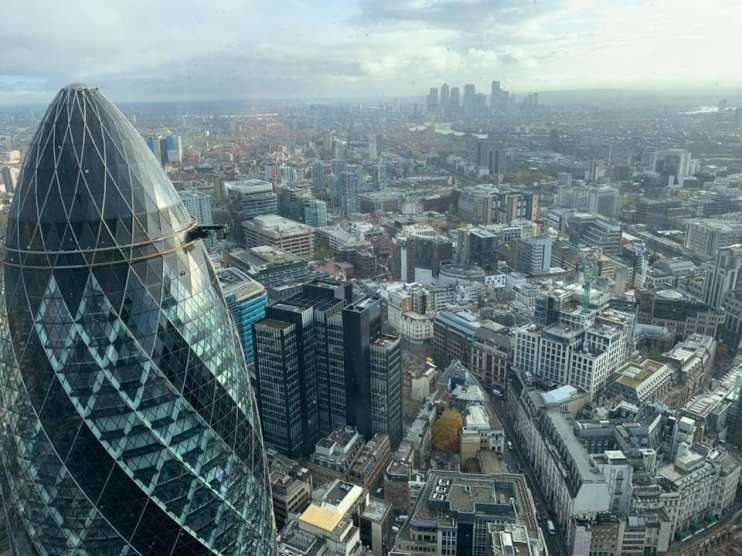PMI: UK private sector grows at fastest pace in three months

Growth in the UK’s private sector has grown at the fastest pace in three months, according to a closely-watched survey.
The IHS Markit/CIPS flash UK composite PMI report came in at 57.7 more than halfway through October, up from last month’s 54.1 at the same period.
Scores above 50 represent growth, while anything below that is a contraction.
The services sector led the growth but business was slowed down by manufacturers struggling with severe supply chain and jobs shortages.
Respondents to the survey said there had been a boost in business and consumer spending as customers enjoyed the unwinding of lockdown restrictions.
But higher wages and rising costs in global supply chains led to the fastest rate of inflation for goods and services in the private sector since records began in 1998.
There was a strong split between sectors of the economy, the survey found, with the services sector recording a Purchasing Managers Index (PMI) score of 58 versus manufacturing production at just 50.6 – the widest margin between the two since 2009.
Manufacturing saw its weakest output performance in eight months with goods producers revealing they are struggling to meet customer demand due to long lead times in supply chains and staff shortages.
Nearly two-thirds of UK manufacturers said delivery times had worsened in October. Only 1 per centsaid they had improved.
By comparison, the services sector recorded strong boosts in business as a result of spending following the rollback of pandemic restrictions, including an expansion of export sales.
New business volumes
New business volumes rose at their fastest rate since June, although 59 per cent of businesses said prices were higher than last month.
The sector has now risen for the eight consecutive months, although it remains off its May peak when the PMI score hit 62.9.
There were also reports of staffing issues and supply chain difficulties, which held back growth, the survey found.
In both services and manufacturing, there were reports that high energy costs and rising fuel prices were also pushing up prices.
Jobs were said to be plentiful, although wages were rising because companies were struggling to fill vacancies.
Chris Williamson, chief business economist at IHS Markit, said: “The UK economy picked up speed again in October but the expansion is looking increasingly dependent on the service sector, which in turn looks prone to a slowdown amid the recent rise in Covid-19 cases.
“Growth is also being accompanied by an unprecedented rise in inflationary pressures, which will inevitably feed through into higher consumer prices in coming months.”
Duncan Brock, group director at CIPS, said: “It seems the two sectors were recuperating at different speeds in October resulting in a lopsided recovery in the UK economy.
“Service businesses were mostly kept afloat by a rebound in confidence as consumers spent their pandemic savings on a few treats.
“The trick is whether firms will be able to meet any ongoing demand as continuing global disruption to logistics fed into the growing shortage of goods, and whether consumers tolerate rising prices.”